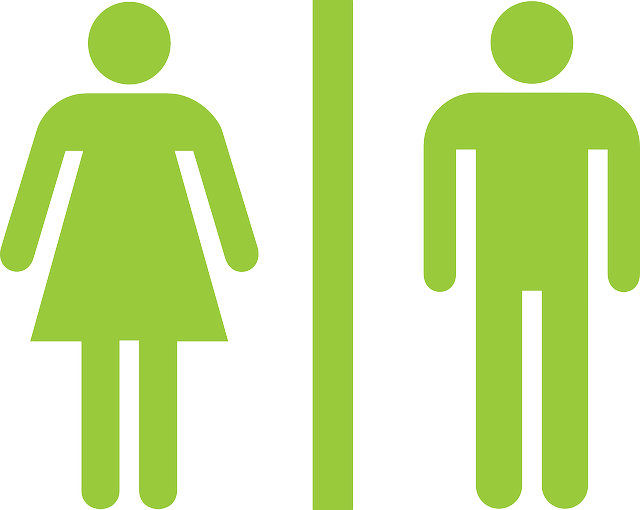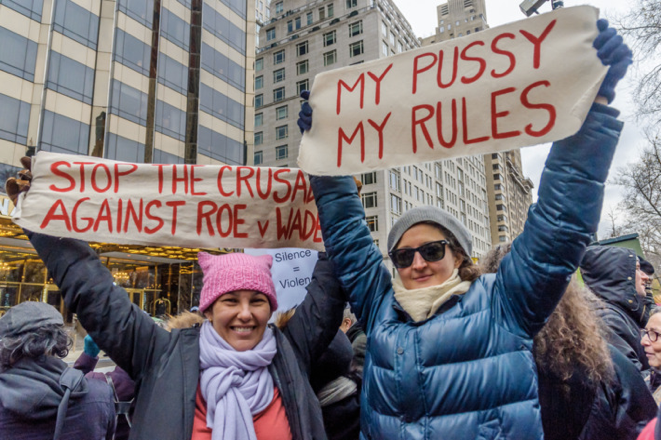By: Samantha Cleare
Feminism: the doctrine advocating social, political, and all other rights of women equal to those of men.
On Sept. 20, U.N. Goodwill Ambassador Emma Watson introduced her campaign “HeForShe.” In her speech she stated, “my recent research has shown me that feminism has become an unpopular word. Women are choosing not to identify as feminists. Apparently, I’m among the ranks of women whose expressions are seen as too strong, too aggressive, isolating, and anti-men. Unattractive, even.”
Both men and women from countries around the world work to achieve gender equality, yet the term feminism is nonetheless seen as divisive. Why is it that this misrepresentation of feminism fuels a notion of “man-hating?”
An answer to this question can be derived from a long history of female oppression. The United States passed the 19th Amendment, enfranchising women, in 1920. Since then, both the United States and the rest of the world have worked to end historical inequalities as well as modern obstacles. While women enjoy basic civil and voting rights in America, inequality in the workforce and government still exists.
Staggering statistics paint a picture of the world’s current progress on gender equality. For example, of the 190 heads of state in the world today, only nine are women. Surprisingly, the United States currently ranks 90th in the world in terms of women in national legislatures. This rank follows those of Cuba, China, Iraq, and Afghanistan. Not to mention, the nonprofit world is also controlled by men; women lead a mere 20 percent of philanthropies around the world.
Oppression also affects the general public. False standards and expectations dehumanize women through the media and advertising worlds. Girls grow up to become insecure, constantly striving for impossible standards; boys grow up being taught by the media to be strong, successful, and aggressive. Airbrushing and photo editing provide an unrealistic idea of beauty for women. These images teach women not to value skills and intelligence but only physical appearance. Not to mention, advertisements with women connected to domestic violence or exploited body parts can be found on television, in magazines, and even on billboards all over the world. Violent treatment of women is encouraged to young men through these images.
Few changes are being made in these respects. Today, women hold a mere 3 percent of executive positions in publishing, advertising, and entertainment industries. In addition, only 16 percent of all writers, editors, directors, producers, and cinematographers are women. Without women voicing opinions in these leadership roles, how can we stop sexism in the media, one of the most powerful communicative tools in the world?
The growing gaps in stereotypes, salaries, and positions of power between men and women fuel a hatred that has deformed the definition of feminism and the idea of honest equality. Feelings of bitterness women feel toward past and present oppression lead to a misunderstanding that fighting for equality between sexes means that women are trying to rise above men. Counter-movements have arisen from such misconceptions of feminism. For example, a campaign called “Women Against Feminism” uses pictures of women with written explanations of why they chose not to be feminists.
Emma Watson addressed this misconception in her speech on Saturday. She described her own personal struggles with gender inequality as well as the issue on a global scale. Watson proposed that around the world, male or female, everyone should fight to equalize the sexes. Women do not suffer from gender norms alone. While women feel a greater negative weight from sexism, men are also victims. According to Watson, male stereotypes emasculate men and leave emotional wounds, causing mental instability and even suicide. Due to these negative side effects, she invited men to join the conversation regarding feminism.
Since its launch, the “HeForShe” campaign has attracted over 20,000 men.
A geotagged map tracks the campaign’s progress in specific countries. The majority of these men live in English speaking countries with 8,125 men pledging to fight for the cause from the United States, 2,427 from Australia, 2,197 from the United Kingdom, and 1,380 from Canada. Meanwhile, countries lacking in women’s rights also seem to lack in male pledges. India (with only 509 male participants) and Saudi Arabia (coming in last with 17 male pledges) show the least amount of progress.
That being said, the map is only two days old and is only presented in English. According to U.N. Secretary General Ban-Ki-moon, the map will reach over one billion people in the next year. An emphasis on countries with less women’s rights, such as India and Saudi Arabia, could globally communicate this cause and raise the amount of male pledges.
Men have entered this discussion in the past. Following the “#YesAllWomen” campaign, which was a retaliation against a shooting targeting women in Santa Barbara, the campaign “#AllMenCan” showed how men of different ages and backgrounds reacted to the tragedy. This supportive response aimed to exemplify how “true men” could also be feminists.
The “HeForShe” and the “#AllMenCan” campaigns prove an important point: Everyone, of every sex, race, and region of the world can work together to end gender inequality. With men’s pledges around the world, we see the desire for change. A growth in the acknowledgement of this issue could lead to possible progress.
With the “HeForShe” campaign, Emma Watson invites men to the conversation about feminism because men are affected too. Watson successfully brought attention to the conflict of gender inequality. Invited or not, regardless of sex, everyone has a choice to help one another in this struggle. With the current lack of progress, Watson claims, “the reality is that if we do nothing, it will take 75 years, or for me to be nearly 100, before women can expect to be paid the same as men for the same work. 15.5 million girls will be married in the next 16 years as children. And at current rates, it won’t be until 2086 before all rural African girls can have a secondary education.”
This omen can be stopped. Watson’s speech and gender-uniting campaigns eliminate discrepancies surrounding the word “feminism.” Together, true male and female feminists can end gender inequality once and for all.


